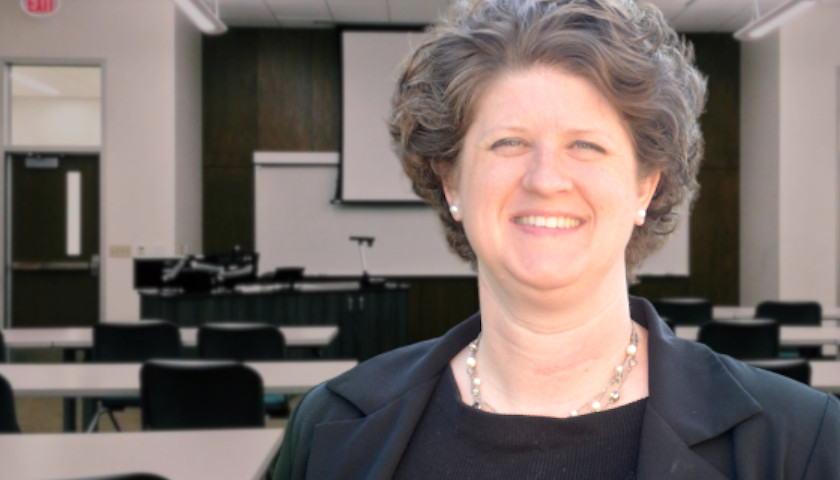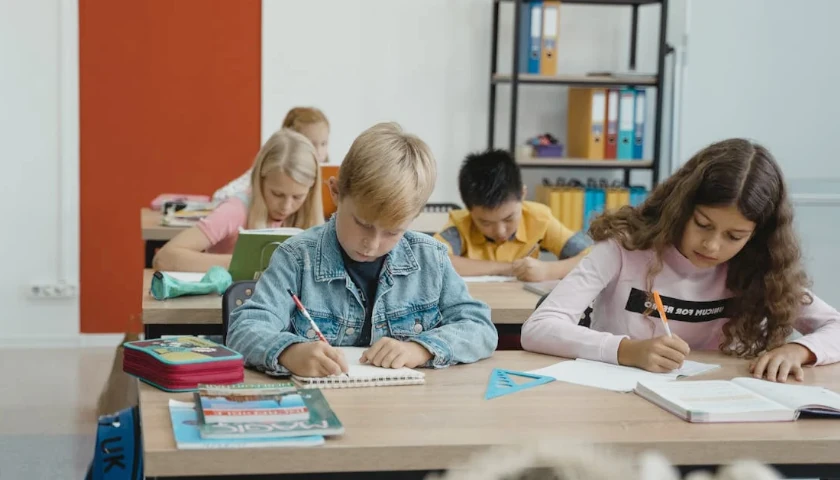by Benjamin Yount
The ceremony for Wisconsin’s State of Education speech began with a “land acknowledgement,” and it didn’t get any less political from there.
“We acknowledge that this Capitol and our DPI building stand on the ancestral lands of the Ho-Chunk Nation. And that this land was forcibly and violently taken from them almost 200 years ago,” Department of Public Instruction Equity and Inclusion director Demetri Beekman said to open his speech Thursday. “Centuries of racism, colonization, and oppression caused by federal and state leaders, institutions, and policies continue to impact our tribal nations.”
There was also a strong political theme to State Superintendent Jill Underly’s follow-up speech.
“As a constitutional right, public education is rooted in democracy. It also forms the roots for our democracy to grow and be healthy. Which means, in turn, that our public education system must be strong to provide a solid foundation for a healthy democracy to grow from and build upon,” Underly said. “To be future active participants in democracy, they need that strong foundation. They need to know how to examine our past. They need to know how to think critically about our present. They need to make informed decisions about their future – our future.”
Much of the remainder of Underly’s speech dealt with school funding, which she said has been lacking.
“The austerity this (and previous) legislatures have insisted on for our schools is starving our public education system. Our schools and children deserve investment,” she added.
Underly did not offer a price tag for how much more she wants invested in Wisconsin schools. She was also silent on the record $5 billion invested into public schools over the past decade.
Underly also focused on social issues in the state’s schools.
“If you’re worried about our kids’ mental health and the need for work that supports suicide prevention – are you supporting inclusive policies that allow for Pride flags and using pronouns?,” She asked. “Pronouns save lives.”
The superintendent’s only mention of test scores was to say that Republican lawmakers place too much emphasis on scores that show Wisconsin kids are falling behind.
“It’s unfortunate that critics will latch onto test scores when so many other things should have taken precedence in a once in a lifetime, or once in a century, pandemic,” Underly explained.
Wisconsin’s last set of test scores, released last year, show proficiency in reading, writing, and math is now below 40%. The test scores from last year have yet to be released.
“Understanding the achievement gap instead as a representation gap, or an engagement gap, means that there are clear action steps we can take to address it. It’s a powerful reframing, because it puts the ball back in our court,” Underly added. “Instead of blaming the student because of their learning challenges, or their family because their parents are working multiple jobs to get by, or their school district or teachers who are under-resourced.”
– – –
Benjamin Yount is a contributor to The Center Square.
Photo “Jill Underly” by Jill Underly. Background Photo “Classroom” by Wokandapix.





